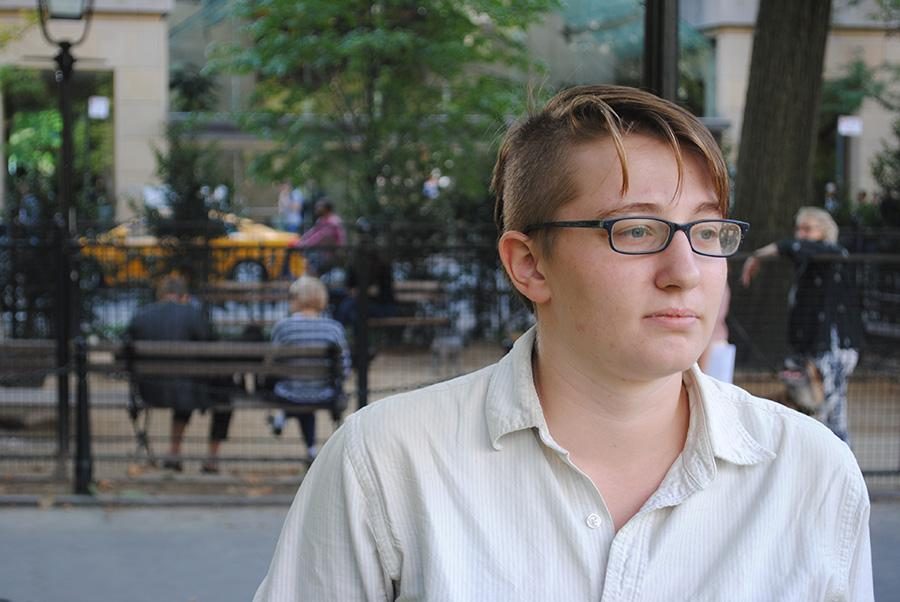Student advocates for financial aid reform
September 22, 2014
NYU is notorious for having one of the highest college tuition rates in the world, and for some students, like 19-year-old Lucy Parks, the financial burden is just too much to carry. Parks dropped out before the start of the fall semester. She would have been a Gallatin junior with a 3.6 GPA. But, unlike many others who preceded her, she did not leave in silence. Instead, in hopes of bringing attention to the issue, she wrote a letter to NYU President John Sexton and shared it with the rest of the world.
Within a week, thousands of people had read her story about growing up gay in a conservative, rural Virginia town and wanting to attend a college where she could feel safe. But being accepted into NYU was only one part of the equation. Even after pleading for an increase in financial aid, Parks was forced to drop out.
“The first thing I did was email [the letter] to Sexton, and immediately after that, I put it on Facebook,” Parks said. “A few people who previously dropped out contacted me and said thank you for doing this because the same thing happened to me. I even got a message from a student at the University of London.”
Not everyone responded positively, however. Some commenters on scribd.com, where her letter was posted, criticized her choice, pointing out the fact that it was ultimately her decision to attend a school that costs approximately $60,000 a year.
Parks said she needed New York City and NYU’s gay and queer culture in order to have the college experience she wanted.
“The other schools I applied to had programs that weren’t as well suited to me,” she said. “You can’t expect someone who is 16 or 17 to make a truly responsible financial decision.”
Parks did not realize the financial impact of her choice until her sophomore year, when she had to live in an apartment because it was cheaper than living on-campus. She also worked part-time to pay for her tuition.
Steinhardt sophomore Kiyomi Taylor said NYU should hold financial aid as priority.
“There’s no allotment of university money that can and should be more important than making sure that students aren’t forced to drop out because of a financial reason,” Taylor said.
CAS sophomore Michael DeLuca said the university’s financial policies may deter students from applying.
“If we want to be a university that attracts students from all socioeconomic backgrounds, we need to provide enough aid to support the diversity,” DeLuca said.
Parks said the constant worry about finances took a toll on other aspects of her life.
“I had less time to study, less time to have a social life and less time to sleep,” Parks said. “I was eating on two to three dollars a day — a bagel at lunch and a slice of pizza at dinner. Having to go hungry at times made it a lot harder to focus as a student.”
But if she could do it all again, she said she would still choose NYU.
“I’m still friends with a lot of people here,” Parks said. “I really do miss going to class, having great professors, reading great books and having a designated time for learning.”
Sexton has not yet responded to the letter, but the dean of the Gallatin School of Individualized Study has invited Parks to discuss the complications of the financial aid process. Parks said she would not be surprised if she were offered more aid, but she would deny it. Instead of returning to school, she plans to spend the next few months experimenting in the real world to see how she can fare without a degree.
Her ultimate goal is to become a professional political organizer and, if need be, she will attend a cheaper school to make that happen. As for now, Parks will continue to advocate for better financial aid at NYU to help other students who are going through similar experiences.
A version of this article appeared in the Monday, Sept. 22 print edition. Email Tsering Bista at [email protected].















































































































































